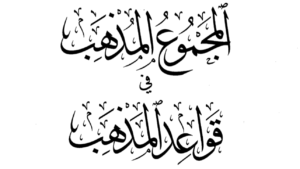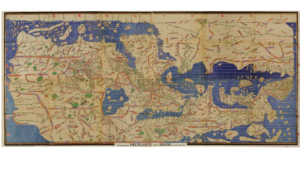
 2023-2024 Data Science Fellowship With the semester over, we’re already planning for what’s to come next year, including announcing our Data Science Fellowship for the 2023-2024 academic year! We are looking for a 2023-2024 Data Science Fellow who will work on various apps in the SHARIAsource Lab, a Harvard initiative designed to deploy data science tools on historical Islamic sources. The Fellow will be based at Harvard Law School, with opportunities to collaborate with various departments and partners—including the Harvard Libraries and the Library of Congress, SEAS and the Institute for Quantitative Social Science, and the Department of History and a community of scholars and students working on similar problems in DH. Successful forays into this data science-driven approach to the study of legal history will require building a corpus of texts from open-source online repositories; creating tools to extract, code, and map data and metadata with GIS and other means; and building algorithms that help relate key people, places, and books to one another through researcher-created data sets and linked open data. The Fellow will work on multiple components of this project. The ideal candidate will have completed a program in computer science or a related field (with a BA, MA, or PhD), have at least 3 years of experience in DH or development, have a background in RTL languages, and/or interest in Islamic studies, and would benefit from spending time working in a university setting on problems at the intersection of technology and academic research. The Fellow will work closely with the PI, Professor Intisar Rabb (Professor of Law & History; Director of the Program in Islamic Law and SHARIAsource Lab at Harvard). We look forward to ushering in the new year and all that is to come!
2023-2024 Data Science Fellowship With the semester over, we’re already planning for what’s to come next year, including announcing our Data Science Fellowship for the 2023-2024 academic year! We are looking for a 2023-2024 Data Science Fellow who will work on various apps in the SHARIAsource Lab, a Harvard initiative designed to deploy data science tools on historical Islamic sources. The Fellow will be based at Harvard Law School, with opportunities to collaborate with various departments and partners—including the Harvard Libraries and the Library of Congress, SEAS and the Institute for Quantitative Social Science, and the Department of History and a community of scholars and students working on similar problems in DH. Successful forays into this data science-driven approach to the study of legal history will require building a corpus of texts from open-source online repositories; creating tools to extract, code, and map data and metadata with GIS and other means; and building algorithms that help relate key people, places, and books to one another through researcher-created data sets and linked open data. The Fellow will work on multiple components of this project. The ideal candidate will have completed a program in computer science or a related field (with a BA, MA, or PhD), have at least 3 years of experience in DH or development, have a background in RTL languages, and/or interest in Islamic studies, and would benefit from spending time working in a university setting on problems at the intersection of technology and academic research. The Fellow will work closely with the PI, Professor Intisar Rabb (Professor of Law & History; Director of the Program in Islamic Law and SHARIAsource Lab at Harvard). We look forward to ushering in the new year and all that is to come!
 CONTENT: Abū Bakr Ahmad b. ʿAlī al-Jaṣṣāṣ’ Kitāb Aḥkām al-Qurʾān Alongside developing data science tools to aid scholarly research, one aim of SHARIAsource is to expand access to primary sources of Islamic law. We recently added to the Portal several collections of Islamic legal canons (qawāʿid fiqhiyya), which are succinct principles of interpretation or substantive law that guide jurists and judges in deciding novel cases. Newly added sources include al-Majmūʿ al-Mudhhab fī Qawāʿid al-Madhhab by Ṣalāḥ al-Dīn al-ʿAlāʾī (d. 761/1359), which is the third-oldest known Shāfiʿī canons collection from the Mamlūk era (following those of al-ʿIzz b. ʿAbd al-Salam (d. 660/1262) and Ibn Wakīl (d. 716/1317)). We have also added a second Mamlūk Shāfiʿī canons collection called al-Ashbāh wa’ l-Naẓāʾir by Suyūtī (d. 911/1505), and an early Ottoman Ḥanafī canons collection with the same title by Ibn Nujaym (d. 969/1563). Professor Mairaj Syed (UC Davis) examined these collection as part of our Courts and Canons (CnC) Workshop last month. Check them out today!
CONTENT: Abū Bakr Ahmad b. ʿAlī al-Jaṣṣāṣ’ Kitāb Aḥkām al-Qurʾān Alongside developing data science tools to aid scholarly research, one aim of SHARIAsource is to expand access to primary sources of Islamic law. We recently added to the Portal several collections of Islamic legal canons (qawāʿid fiqhiyya), which are succinct principles of interpretation or substantive law that guide jurists and judges in deciding novel cases. Newly added sources include al-Majmūʿ al-Mudhhab fī Qawāʿid al-Madhhab by Ṣalāḥ al-Dīn al-ʿAlāʾī (d. 761/1359), which is the third-oldest known Shāfiʿī canons collection from the Mamlūk era (following those of al-ʿIzz b. ʿAbd al-Salam (d. 660/1262) and Ibn Wakīl (d. 716/1317)). We have also added a second Mamlūk Shāfiʿī canons collection called al-Ashbāh wa’ l-Naẓāʾir by Suyūtī (d. 911/1505), and an early Ottoman Ḥanafī canons collection with the same title by Ibn Nujaym (d. 969/1563). Professor Mairaj Syed (UC Davis) examined these collection as part of our Courts and Canons (CnC) Workshop last month. Check them out today! CONTEXT: Roundtable on the History of Islamic International Law Last month, we convened a live Roundtable on the History of Islamic International Law. Organized by Intisar Rabb (Harvard Law School) and Umut Özsu (Carleton University), who are editing a volume on the subject for the Cambridge History on International Law, this Roundtable brought together the contributing authors to that volume – all historians and legal scholars selected for their expertise on the contested status of various visions of international law from the medieval Islamic world to the Ottoman era (622-1923), spanning a variety of regions from across the globe. During the Roundtable webinar, contributing scholars reflected on and deliberated the larger themes, lingering questions, and ongoing debates surrounding the history of what we have become accustomed to calling ‘international law’. The discussion continued on our Islamic Law Blog, where we published essays and summaries that preview the Handbook and emerge from Roundtable.
CONTEXT: Roundtable on the History of Islamic International Law Last month, we convened a live Roundtable on the History of Islamic International Law. Organized by Intisar Rabb (Harvard Law School) and Umut Özsu (Carleton University), who are editing a volume on the subject for the Cambridge History on International Law, this Roundtable brought together the contributing authors to that volume – all historians and legal scholars selected for their expertise on the contested status of various visions of international law from the medieval Islamic world to the Ottoman era (622-1923), spanning a variety of regions from across the globe. During the Roundtable webinar, contributing scholars reflected on and deliberated the larger themes, lingering questions, and ongoing debates surrounding the history of what we have become accustomed to calling ‘international law’. The discussion continued on our Islamic Law Blog, where we published essays and summaries that preview the Handbook and emerge from Roundtable.
See the full newsletter.

